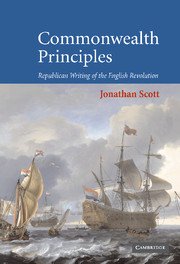8 - Virtue
Published online by Cambridge University Press: 22 September 2009
Summary
Of all things transitory and vain, when sin
With vanity had filled the works of men:
Both all things vain, and all who in vain things
Built their fond hopes of glory or lasting fame,
Or happiness in this or the other life;
All who have their reward on earth, the fruits
Of painful superstition and blind zeal,
Nought seeking but the praise of men, here find
Fit retribution, empty as their deeds.
John Milton, Paradise LostMILTON AND PLATO
In virtue we consider the most important consequence of liberty. In the words of one pamphlet of 1659, ‘And doubtlesse the defence of these Liberties is essentially necessary to the well being of any Nation, and to the being of publick morall righteousness amongst men.’ This was, for most of our writers, the principal end at which the republican experiment aimed. That Milton's republicanism hinged upon a politics of virtue is well understood. For Milton, as for most other republicans, this was the highest personal and political value, not only embodying as it did the moral life enjoined by God, but hinging upon the knowledge of God himself.
Virtues praised by Milton included wisdom, courage, justice, temperance, fortitude, magnanimity, piety, godliness and chastity. In what he took to be the broad agreement on this point of Greek, Roman and Christian authorities, his understanding of all virtue hinged upon ‘self-discipline … an ordering of the self in accordance with … reason, which, by subjecting unruly passions, gave priority to its highest moral capacities’.
- Type
- Chapter
- Information
- Commonwealth PrinciplesRepublican Writing of the English Revolution, pp. 170 - 190Publisher: Cambridge University PressPrint publication year: 2004



